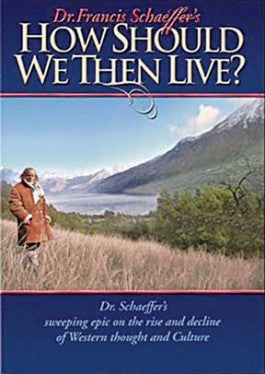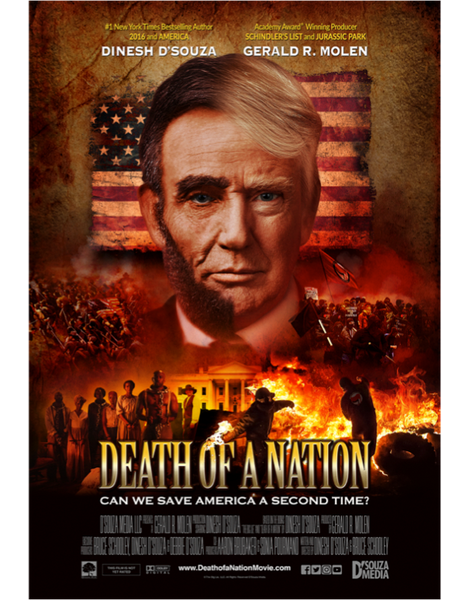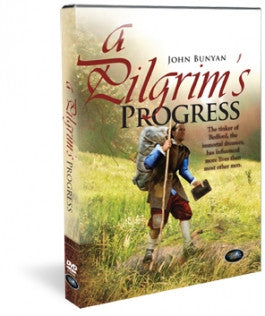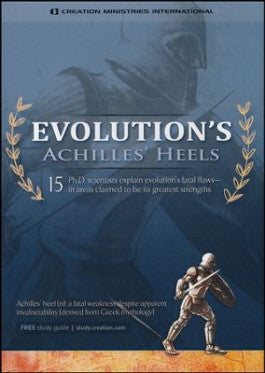
How Should We Then Live? DVD
Watch TrailerAdditional Information
- Producer: Gospel Communications International, Inc.
- Languages: English
- Run Time: 6 hrs.
- Closed Captioning: Yes
- Region Code: A See More
Sale price
$32.99
Regular price
$59.99
You save 45%
Estimated arrival between and for USA.

You might also like
How Should We Then Live? DVD
Episode 1 from How Should We Then Live? series: "The Roman Age" explains that the greek-roman gods were limited and were not a steady base for the Roman society to stand upon. Then Rome collapsed from the inside and an attack from the barbarians caused Rome to destroy itself even quicker.
Episode 2 from How Should We Then Live? series: "The Middle Ages" talks about how in this moment in time, Christians had many positive traits but permitted humanistic ideas filter in to mix with the lessons Christians learned from the Scripture. All these details would start to arise in the Renaissance times.
Episode 3 from How Should We Then Live? series: "The Renaissance" talks about the re-surging of the traditional way of thinking. The way of the humanistic thinking of man only beginning and focusing on himself. This becomes what presides at the time and continues to expand throughout the next years and periods to come.
Episode 4 from How Should We Then Live? series: "The Reformation" focuses on the impact and effect that the Reformation caused in the people from its beginnings.
Episode 5 from How Should We Then Live? series: "The Revolutionary Age"
Episode 6 from How Should We Then Live? series: "The Scientific Age"
Episode 7 from How Should We Then Live? series: "The Age of Non-reason"
Episode 8 from How Should We Then Live? series: "The Age of Fragmentation"
Episode 9 from How Should We Then Live? series: "The Age of Personal Peace & Affluence"
Episode 10 from How Should We Then Live? series: "Final Choices"
Episode 11 & 12 from How Should We Then Live? series: "Interviews with Dr. Francis Schaeffer and Edith Schaeffer"
How Should We Then Live? Book & series
Before making the series, theologian Francis Schaeffer first wrote the book How Should We Then Live?: The Rise and Decline of Western Thought and Culture in the late 1970s. How Should We Then Live? book is sort of a base for the DVD series of ten episodes. Schaeffer does the voice-over of each episode and is seen throughout the series which was directed by John Gonser and produced by his own son Frank. In How Should We Then Live? series Schaeffer criticized the effect of the Enlightenment, the Renaissance and Charles Darwin. Several well- known leaders of the American Conservative Evangelical Movement like Jerry Falwell make an appearance throughout the series. Francis Schaeffer has made several projects with the title How Should We Then Live? like for example the book, a study guide to help readers with the book, a series with ten episodes and a study guide for viewers̴Ì_to look while watching the series.
How Should We Then Live? outlines history from the Western times to Ancient Rome up to the moment when the book was written in 1976 and Schaeffer focused on three outlooks: the scientific, the religious and the philosophic. He also makes several associations with art and architecture as a medium of demonstrating how the movements that arose in that time displayed the different ways of thinking that changed throughout the times. The main proposition of the book is that when society is based on the Scriptures and on the God who although is not seen yet is always there, it gives us a guide to which we can follow and by which we can judge the culture. Schaeffer calls this ‰ۡÌÝ?Freedom without chaos‰ۡó? which is when people base civilization on humanism which basically means that it is believed that man is its own standard which would make him independent and self-governing. Also it would mean that everything is relative and it is impossible for man to know what is right from what is wrong. Because there is much debate of what is considered best for each group, which ends up being disintegration of thought and it was the result of the anguish and estrangement seen in society today. That disintegration is seen in the arts for example in the work of Pablo Picasso called "Les Demoiselles". This specific artwork is known to make a statement of the beginning of what is known today as the Modern Art. Another argument Schaeffer from the How Should We Then Live? series made is that modern principles are founded on the Personal Peace which is the longing to not worry or become affected by the dilemmas surrounding the world and Affluence which looks to expand personal gain. Schaeffer from the How Should We Then Live? series addresses that when people follow and live these values they'll be allured to give up their freedoms and trading it for a domineering leadership that will give and represent the right values. He later on advises that that government will not be as apparent as with the fascist rulers in the 20th century but it was stationed on manipulation and subdued types of controlled information, genetics and psychology.
How Should We Then Live? DVD Info
The How Should We Then Live? Series by Dr. Francis Schaeffer has a duration of six hours since it contains ten episodes of half an hour each and was released in 2009. The series is produced by Gospel Communications International, Inc. The DVD contains special features like a thorough interview with the creator of the series, Dr. Francis Schaeffer and his wife Edith Schaeffer. The How Should We Then Live? series also contains a PDF for download or printing filled with a study guide for viewers of the DVD. It has optional closed captioning available.











